By Ray Kestenbaum
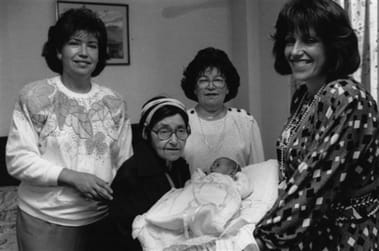
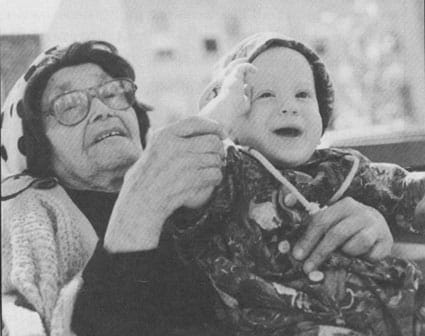
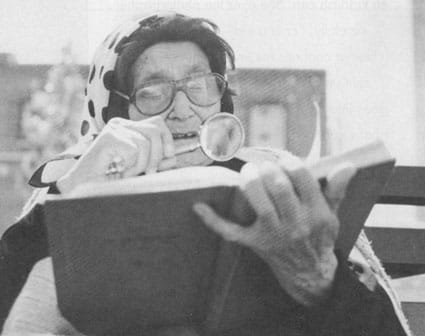
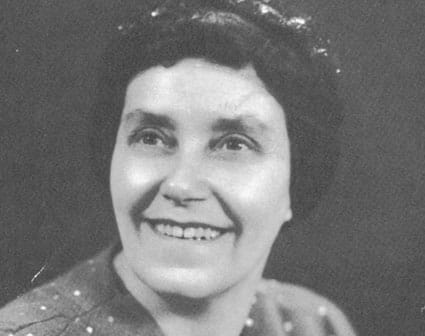
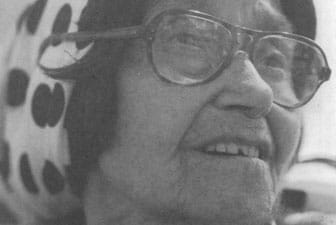

Editor’s Note: This article originally appeared in The Jewish Voice and is published here with permission. Rebbetzin Maryasha Garelik-Shagalov is the mother of the late Rabbi Zalman Shagalov obm, who served on the FREE board for many years, and Mrs. Rosa Marosov, who coordinates the Social Services division at FREE – to whom we offer our deepest condolences, and to the entire family.
Lubavitcher chassidim and many other good people are mourning the passing last week of “Bubbe” Maryasha Garelik who died at the age of 106, Baruch Dayan HaEmet. Her remarkable long life of piety and giving was marked by defiance against cruel governments and anti-Semites. She survived pogroms in Czarist Russia, Soviet anti-Semitism and Nazi terror.
Bubbe Maryasha died in Crown Heights, where she resided since 1953, and was buried last Thursday close to the late Lubavitcher Rebbe, Rabbi Menachem Mendel Schneersohn, at the Old Montefiore Cemetery in Queens. She is survived by four generations of progeny whose numbers can hardly be counted. Lubavitch figures indicate over 500 without counting spouses. Many of her descendants are spread around the world as Chabad “shelichim,” Lubavitch emissaries.
The Languages of Yiddish and Chessed were on her Tongue
Bubbe (Yiddish for Savta) Maryasha was a familiar figure along Crown Heights ‘ Kingston Ave. and Eastern Parkway, all five feet of her, shrunken and hunched in her last years, carrying her ever-present siddur, a gift or a cooked meal to someone. Yiddish was the language she spoke to everyone whether they understood her or not and the language of chessed, of loving kindness, was on her tongue.
Fragile though she was, Bubbe Maryasha was said to be a feisty woman, undefeated by years of hunger, persecution and tragedies. According to a Lubavitch biography, she was five when her father was killed in a pogrom in Czarist Russia. Her grandparents were subsequently executed.
Years later, under Soviet rule, Maryasha, her husband and six children were tormented by the Soviet police. Mr. Garelik refused to work on Shabbat and the Garelik family paid the price for that. They were evicted from their apartment into the deep snow. In Stalin’s regime of the 1930’s, Garelik joined the Jewish “underground” but paid another price. He was led away from the kitchen table, arrested, shot and killed. Maryasha was left alone to raise her six children.
Her Father, Grandparents and Husband Were All Murdered
She found out about her husband’s execution in 1987, 50 years after it took place. Meanwhile, she had raised her children and her children raised the grandchildren and so forth. All of the descendants are said to have kept the faith, mostly as Lubavitcher chassidim. She was often asked about how old she was and she would answer, “My years belong to G-d alone.”
In the Soviet Union, when someone tried persuading her to send her children to the Communist public school, she said, “Stalin will be torn down before my children are indoctrinated that way.” By 1941, when the Germans advanced into Russia, the entire Garelik family escaped to Uzbekistan, where she sold socks to survive. In 1946, after the war, the Gareliks found themselves in a detention camp in Germany but soon they left for France.
In Paris, Mayasha established a Lubavitch girls’ school that is still operating. She emigrated to the U.S. in 1953 and soon after helped to start a Brooklyn bikur cholim organization. In both the bitter and sweet, Maryasha discerned Hashem’s providence. Her relationship with Him seemed exquisitely personal and concrete.
In the darkest of times, she held on to G-d and her prayerbook. Tzedakah, mikveh, girls’ chinuch (Jewish education), chessed and rachamim were her agendas.
Our sages tell us when a great tzadik or tzadeket passes on, the Jewish community is much diminished. Yehei zichra baruch, may her memory be cherished.



